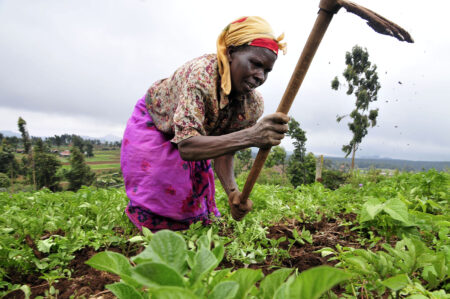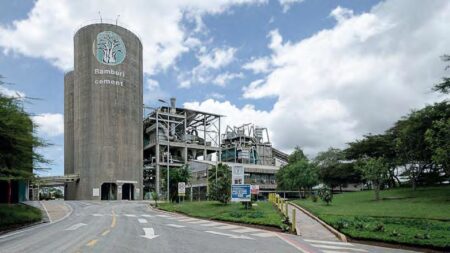Tanzania is in the processes of constructing mega court buildings that are large enough to house all levels of judicial services from the Primary Court all the way to the Court of Appeal. The actual value of the project has not been made public but due to the size and scope, it is estimated to cost onward of multi-million dollars.
The initiative is undertaken by the Judiciary of Tanzania and the resulting six High Court buildings are christened the Integrated Justice Centres (IJC) of Tanzania. The project is already underway across five regions of the country.
The court buildings will be in all major cities including the country’s administrative capital of Dodoma, the tourist hub of Arusha, the lake city of Mwanza and the fast developing agricultural town of Morogoro where ongoing work on the Standard Gauge Railway (SGR) have seen tremendous growth urban to rural migration in search of jobs and set up of economic activities all along the railway line.
Similarly, owing to its large population and anticipated high number of cases, in the commercial hub of Dar es Salaam, there will be two IJC buildings constructed instead of one.
The Integrated Justice Centres (IJC) are meant to bridge the huge gap between number of cases and judiciary’s capacity to handle them. As a result, there are numerous cases pending at all elvels of the system with suspects been remanded for prolonged periods of time waiting for their cases to be heard.
The Constitutional and Legal Affairs Standing Committee is in charge of the project and conducted inspection of some of the buildings at the end of last week. The inspection of the buildings was conducted in Kondoa and Manyara where the District Court and the Resident Magistrates’ Court buildings have already been completed, respectively.
Even though no timeline as to the expected competition of the buildings is expected, local media quotes Tanzania’s Minister for Constitutional and Legal Affairs, Dr Augustine Mahiga, who is the Manyara Resident Magistrates’ Court as been pleased with the pace and quality of the ongoing construction works.
The committee moves on to Arusha for the inspection of ongoing construction works there. The tourist hub is to house one of the IJC, the committee is then expected to be presented with the Ministry of Constitutional and Legal Affairs report as well as the Ministry’s report on the implementation of development projects conducted by the Commission for Human Rights and Good Governance (CHRAGG) in the 2019/20 fiscal year.
After Arusha, the Committee moves on to carry our inspections of the construction works in Morogoro Region where another High Court building is in progress.
https://theexchange.africa/opinion/arbitration-in-tanzania-how-an-85-year-old-landscape-is-changing/
Does the judiciary have the need human resource?
While Tanzania is carrying out this unprecedented and very ambitious initiative to build six mega court houses, the question arises, does the country have enough magistrates and judges to serve in all these courts?
The question can also be looked at from a different angle, is the issue of delayed cases a matter of lacking courtrooms or the disparity of high number of cases against few specialist to administer the cases?
Tanzania is the largest country in East Africa both by geographical size and by population count. As such, it is no wonder that it has high prison population counts and also the related high count of cases waiting to be heard.
And this is taking into consideration only the criminal end of the judicial system. When you bring into the picture, the civil and corporate issues then you start to see the immense task that burdens the few magistrates that the country has.
It is thus imperative for the country to not only build courtrooms but to ensure there are magistrates ready to preside over those courts. Every year, thousands of graduates go without jobs, and the government is increasingly discouraging hope for jobs in the public sector which happens to include the judicial system.
Without increasing the hiring capacity of the judiciary how will the country meet its demand for more lawyers, public prosecutors, magistrates and judges? It simply cannot. So to run parallel with the construction of new court houses, a very commendable initiative, but there is the need for staff to serve in those courthouses as well.
By increasing the hiring capacity of the judiciary by allocating it more money and mandate to employ, then the country will in effect create new jobs. The judiciary will have the capacity to take in the graduates every year ensuring that cases can be heard in a timely fashion and most importantly, that these cases get the due time they need for research, investigations and hearing so justice can be served without bias or oversight.
At the moment, the prisons are over populated and the courthouses have files upon files of back cases, to get these cases over with, the new courthouses need new staff.











